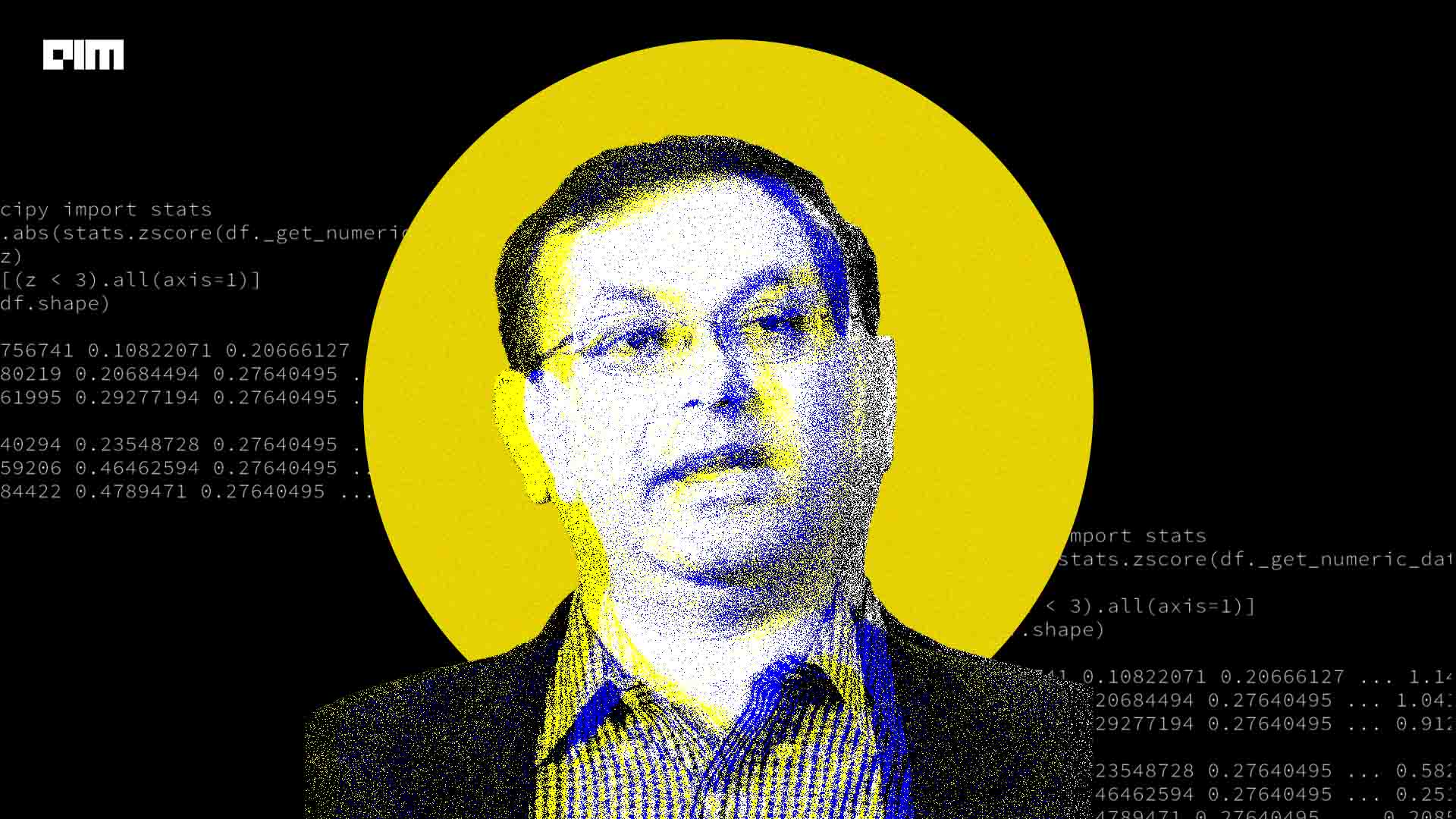
When DataRobot CEO Debanjan Saha visited India last week, he said India should begin creating its own foundational models, echoing a sentiment widely acknowledged across the country.
In an exclusive interaction with AIM, Saha affirmed that once India has good Indic large language models (LLMs), DataRobot is open to hosting them on its platform.
“We want to be a platform where people come for value and optionality. This approach is already evident in several countries where models require fine-tuning or where different linguistic contexts demand the use of distinct models,” Saha said.
Indeed, there exists a compelling need for India to forge its own foundational models, which possess a deep understanding of the nuances, intricacies, and rich diversity embedded within the tapestry of India’s myriad cultures and languages.
Players like Krutrim AI, Sarvam AI, Zoho, and Reliance Jio-backed BharatGPT initiative, are working on building foundational models for India from scratch.
Promise to Presence
The timing couldn’t have been better. During a prior conversation with AIM in 2022, which took place on the sidelines of the Global AI Summit in Riyadh, Saudi Arabia, Saha expressed a desire to expand in India.
Undoubtedly, India could be an important market for DataRobot because of its rapidly growing economy and the many companies and startups that exist in the country. Now, Saha, with his recent visit to the country, is working towards transforming his vision from two years ago into a tangible reality.
“That’s precisely why I’m here. We’ve had incredibly positive customer discussions in Mumbai, and I anticipate similar engagements here in Bengaluru. We genuinely believe this presents a significant opportunity, and, on a personal level, India holds special importance for me. The goal is to expand our footprint in India,” he said.
DataRobot is uniquely positioned to fuel this growth. Its mission is to empower organisations with AI that delivers real-world value, by making AI more accessible and eliminating complexities and siloes across the AI lifecycle through a unified platform approach.
Currently, DataRobot primarily focuses on four industries namely banking, insurance, manufacturing and healthcare. In India too, the startup will target clients in these industries.
Moreover, Saha, who joined the company as CEO in 2022, also revealed that DataRobot is expanding its headcount in India. While he refrained from sharing an exact number, he did stress on hiring for engineering and data science roles.
“We are hiring in a lot of areas and I do expect it to be kind of depending on how business does of course.”
While DataRobot has a big public sector portfolio in the US, the company is currently not directing its focus towards the public sector in India.
Invests in Generative AI
DataRobot aims to leverage the recent surge in generative AI by offering its customers a diverse range of LLMs, including Llama, GPT-4, Falcon, and more, through its platform.
According to Saha, the company is well funded, having raised $1.1 billion so far and is already investing heavily in two areas: generative AI and MLOps or AI production.
“While many companies provide individual components like vector databases, LLMs, or guardrails, the key lies in having a platform which efficiently manages the lifecycle of these components, enabling the creation of value-added solutions.”
“At DataRobot, our focus is on aiding organisations in building solutions and also guiding them through the governance process and observability stack. This ensures the seamless transition to running these solutions in production and managing them effectively in an enterprise setting,” Saha said.
When questioned about the prospect of DataRobot developing its own foundational models, Saha expressed that it’s a costly endeavour and they don’t see substantial value addition in pursuing it. He anticipates that, with time, most models will possess comparable capabilities.
Nevertheless, the differentiating factor lies in the proprietary data used for training these models and the adept management and monitoring practices implemented in real-world scenarios, ultimately contributing significant value to customers.
Fuels Predictive AI
Saha believes that the intersection of generative AI with predictive AI will be beneficial for enterprises. While predictive AI was the initial focus for enterprises before the surge in popularity of generative AI, it didn’t gain traction to the extent that generative AI did.
One reason predictive did not take off was these models were difficult to build and use, however, generative AI could change this, according to Saha.
“For instance, instead of delving into the intricacies of mathematics and science required for constructing a predictive model, if you can articulate your desired outcome using natural language, certain systems can autonomously generate the predictive model for you,” he said.
Explaining further, Saha said that even if you don’t always comprehend the inner workings of these models, a natural language interface provides an engaging means of interacting with a predictive model. This makes the adoption of predictive AI, according to him, more accessible and widespread.
“We collaborate with numerous customers for tasks like customer churn modelling. When businesses are concerned about predicting when and why customers might leave, they leverage the output from predictive models.
Subsequently, this data is fed into a generative pipeline, enabling the creation of highly personalised next-best offer strategies and other tailored communications for effective engagement.”
Loves Open Source
Among the LLMs leveraged by DataRobot’s customers on its platform, GPT-4 and Llama2 stand out the most popular. Falcon, another open-source model developed by UAE’s Technology Innovation Institute (TII), is also very popular.
Expressing his strong affinity for open source and open systems, Saha envisions a future where the distinction between closed and open source models diminishes significantly.
“I believe GPT-4 is still the best LLM to date, but smaller open-source also do well for certain specific use cases. Moreover, once the distinction diminishes drastically, “people are going to open source these models instead of attempting to extract further benefits from the investment made to reach this stage.”
The post DataRobot is Open to Hosting IndicLLMs on its Platform appeared first on Analytics India Magazine.